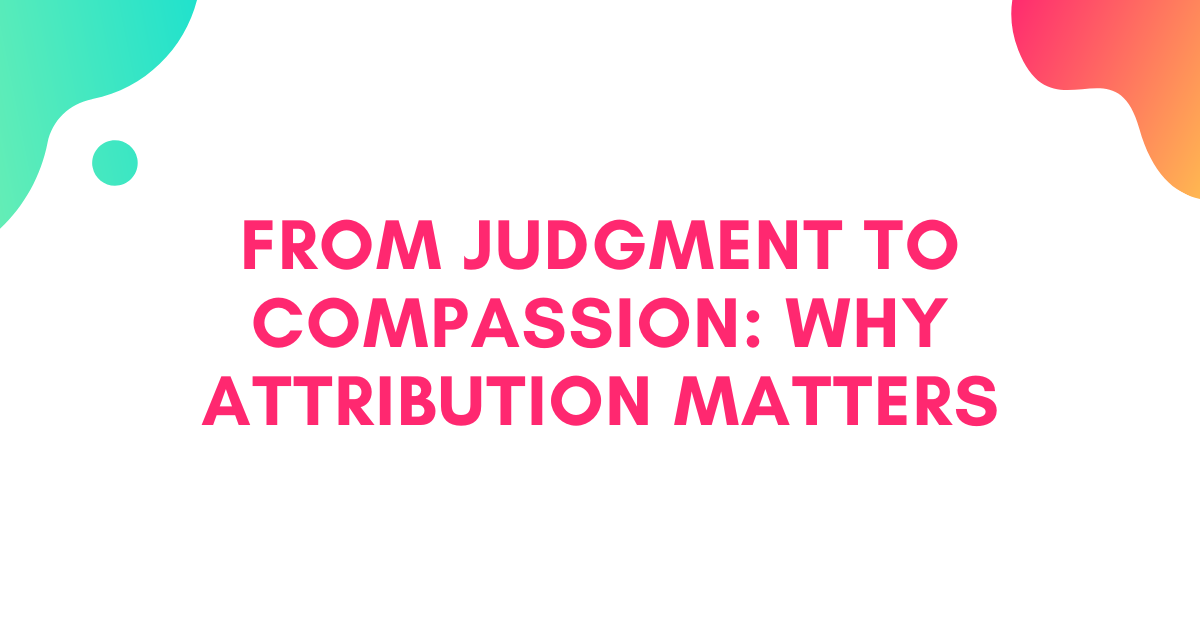Fierce Compassion: The Feminist Leadership Superpower
Compassion ≠ “Being Nice”
When most people hear the word compassion, they imagine Mother Teresa’s venerable selflessness — or maybe a bug-eyed, floppy-eared puppy that makes you tilt your head and murmur, “Awwww.”
The very image of softness. Kind, agreeable, and harmless.
But in my coaching, compassion is anything but passive.
Compassion, when practiced, is fierce. It takes a stand and advocates — especially when it’s misunderstood, or when it surfaces long-simmering conflict others would rather sweep under the rug.
Genuine compassion is ruthless clarity in action.
The kind that cuts through old habits of self-doubt, misplaced fault-finding, or automatic people-pleasing.
It’s the leadership muscle that lets you speak the unpopular truth, say no because it’s an honest yes to yourself, and make the hard calls your team needs — without shame, guilt, or judgment.
Why Feminist Coaching Starts Here?
This misunderstanding of compassion isn’t just personal — it’s systemic.
More than half my clients work in male-dominated industries where empathy is coded as feminine and labeled as weakness. They’ve been told that success requires stoicism, toughness, or perfection.
But that conditioning costs us connection — and connection is how influence actually spreads.
In feminist coaching, we begin by redefining compassion as a relationship with oneself.
Reconnecting with yourself isn’t indulgence; it’s responsibility. Because when you can’t extend understanding to yourself, you end up leading from reactivity instead of grounded presence.
That’s why I teach self-compassion practices that engage multiple forms of intelligence — cognitive, somatic, emotional, metaphorical, and interoceptive.
The Science of Fierce Compassion
When you activate compassion, you also activate the parasympathetic nervous system — the part that helps you stay calm, creative, and connected even under stress.
This presence leads to better conversations, wiser decisions, and less burnout.
When your mind and body’s intelligence are aligned, leadership flows naturally. It’s not about performance; it’s about congruence — your values, tone, and presence all communicating the same truth.
This is where neuroscience meets feminism: in those micro-moments when you notice, “I’m safe enough to stay open — first to myself, then to others.”
What Fierce Compassion Looks Like?
Taking a deep breath and exhaling twice as long before replying to that tense email.
Saying, “I need time to think about this,” instead of forcing a yes.
Naming the truth with care: “I hear your frustration. Here’s what I can commit to.”
Here’s what this really is under the hood: your neural circuitry — hundreds of millions of connections in your nervous system — learning to express power through calm, clarity, and care.
This is feminist leadership in action: not brittle hardness, but grounded authority and embodied integrity.
Practice It
If you want to experience what embodied integrity feels like, try my 15-minute guided trance on YouTube or my podcast. It’s neuroscience-based, grounding, and helps you lead from clarity rather than reactivity.
Here’s the Takeaway ✨
If you’ve been told compassion makes you a pushover, it’s time to reclaim it as your superpower.
Because compassion — practiced with intention and expressed through action — is how we honor our richly complex humanity, even in the midst of dehumanizing systems.
That’s not a weakness. That’s leadership.
Additionally, you can
Watch on YouTube: Self-Compassion and Social Change with Dr. SD Shanti and Jamie Lee
Listen on Risky Conversations Podcast: How to Say No to Glue Work Without Losing Your Cool or Your Values
Read on the Blog: From Judgment to Compassion






